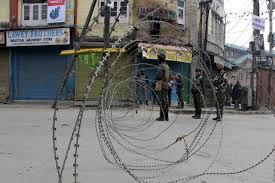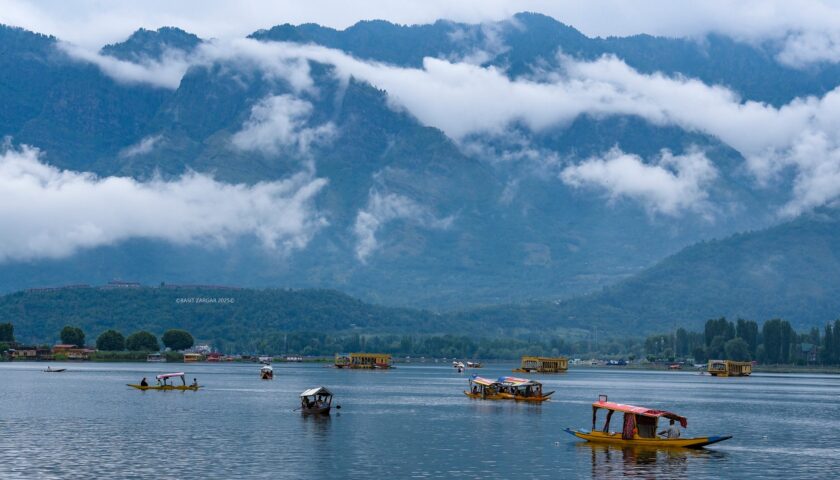Justice continues to be a casualty in strife-torn Jammu and Kashmir, thanks to incomplete and abandoned probes into major political ‘mishaps’ and rights abuses.
 According to human rights defenders, the probes into political ‘mishaps’ and rights abuses in the state are ordered “only to quell public anger.”
According to human rights defenders, the probes into political ‘mishaps’ and rights abuses in the state are ordered “only to quell public anger.”
Noted human rights defender, Advocate Parvez Imroz, believes the Government of India has “hampered the criminal justice system by its overt and covert operations.”
It’s believed that the “Institutional Denial of Justice’ in Jammu and Kashmir started way back in 1963 when Jawaharlal Nehru sent his intelligence chief, BN Mullick, to Kashmir to probe the theft of holy relic from Hazratbal shrine. The theft of relic of Prophet Muhammad (PBUH) from the shrine on December 27, 1963 triggered a stir in the entire Sub-Continent. Some arrests were made and the intelligence officer was rushed from New Delhi. The relic was recovered and identified, but the culprits were never brought to justice.
When Mullick phoned Nehru about the recovery of the relic, he said: “You have saved Kashmir for India.” In his book ‘My days with Nehru, he writes: “It was an intelligence operation never to be made public.” On February 12, the then Home Minister, Gulzari Lal Nanda, said on the floor of the Parliament that the investigation would take a week to complete. “The culprits shall be identified and brought to justice,” he said. The outcome of the investigation has however not been made public so far.
On February 15, 1975, a Peoples League activist, GN Bulla, was killed in police custody. The killing evoked massive protests and the government responded by ordering a probe.The then SDM was directed to complete the probe within a stipulated time. The police, according to Bulla’s relatives, restrained people from appearing before the inquiry commission whose findings have not been made public till date.The SDM offered compensation to the aggrieved family which, however, rejected it.
The first enquiry into Sopore carnage was ordered in 1993, a few days after the tragedy on January 6. The State Government has blamed the inquiry officer, Justice Amarjeet Singh, for putting an end to the inquiry, according to documents.
“Justice Amarjeet was time and again requested to complete the inquiry but without any positive response,” the government had said.
Following the massacre of 35 Sikhs at Chittisinghpora in south Kashmir, the police claimed killing of five ‘foreign’ militants involved in the massacre at Panchatalan in Anantnag district. The DNA samples of the slain persons were taken to ascertain their identity when the people contested the police claims. The reports were fudged. The leak of fudging created uproar in the Valley and Dr Farooq Abdullah, the then Chief Minister, made a suo-moto statement in the Legislative Assembly, saying Justice G A Kuchey will hold inquiry into the matter and submit his report within two months.
“We will convene a special session of the House and place that probe report before the members,” he added. Neither the special session was convened nor the findings made public.
On January 2, 2002, two Dutch nationals were shot dead by Border Security Force personnel in Srinagar when they argued with them. A section of irresponsible electronic media linked the slain Dutch nationals to Al-Qaeda. As usual, a probe was ordered and till date, the Dutch government is waiting for the findings.
In 2006, the government vide order No 1973-LD (A) of 2006 appointed Justice Tariq Ahmad Naqashbandi to conduct inquiry into the drowning of 22 students and staff members of Burning Candle School in Handwara, in Wular Lake on May 30, 2006. Nothing has moved since.
In 2009, vide SRO No 160, the State Home department ordered an inquiry into ‘rape and murder’ of Neelofar Jan and Asiya Jan of Shopian on the intervening night of May 29 and 30 that year. The probe report was submitted by Justice (retired) Muzaffar Jan. The findings were allegedly doctored and Justice Jan had to flee from Kashmir for quite some time. The process continues unabated.
According to the data furnished by the Jammu Kashmir Coalition of Civil Society (JKCCS), the incumbent government has ordered as many as eight probes since it took over the reins of the state early this year. The findings are awaited.




